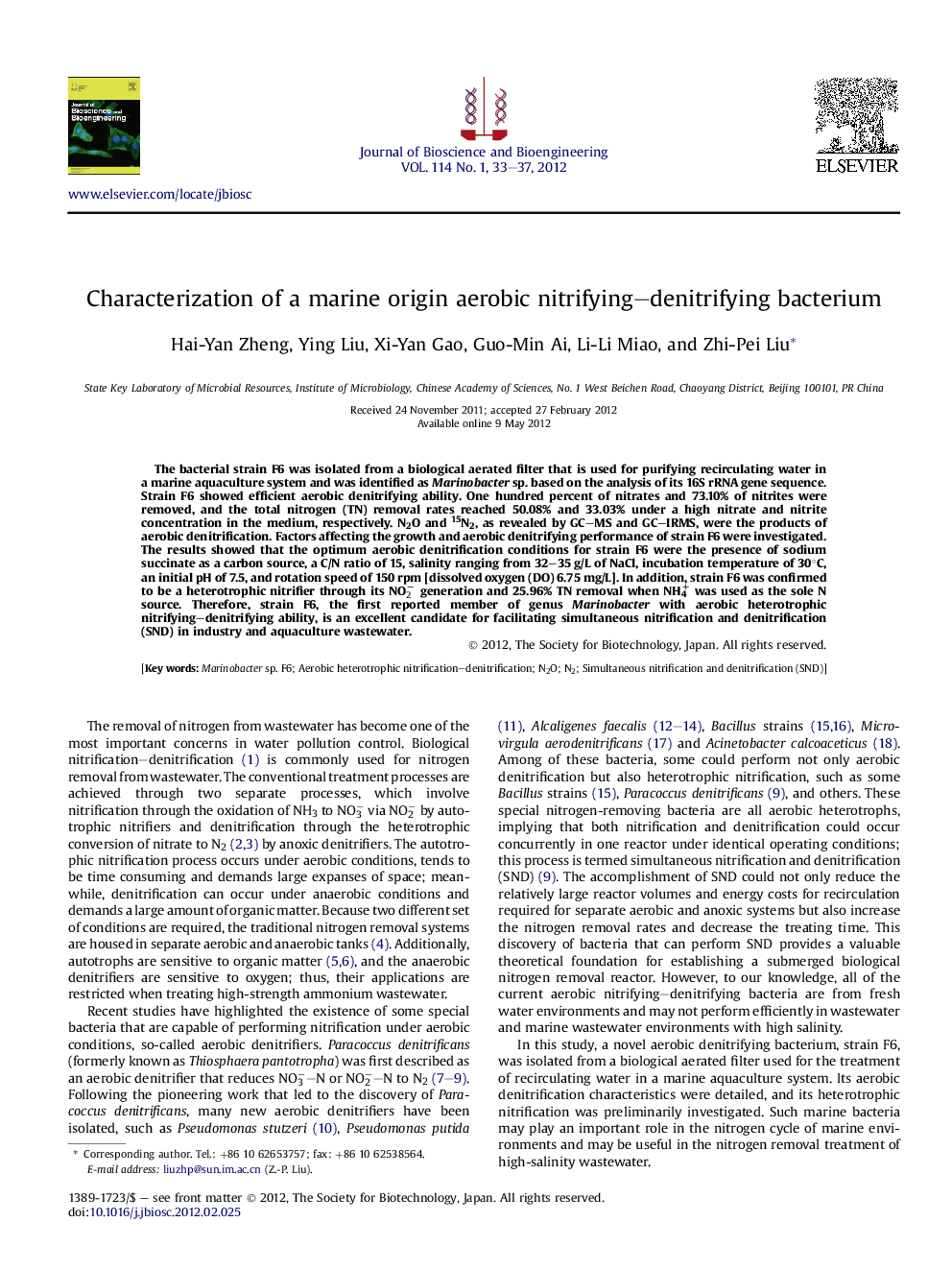| Article ID | Journal | Published Year | Pages | File Type |
|---|---|---|---|---|
| 20679 | Journal of Bioscience and Bioengineering | 2012 | 5 Pages |
The bacterial strain F6 was isolated from a biological aerated filter that is used for purifying recirculating water in a marine aquaculture system and was identified as Marinobacter sp. based on the analysis of its 16S rRNA gene sequence. Strain F6 showed efficient aerobic denitrifying ability. One hundred percent of nitrates and 73.10% of nitrites were removed, and the total nitrogen (TN) removal rates reached 50.08% and 33.03% under a high nitrate and nitrite concentration in the medium, respectively. N2O and 15N2, as revealed by GC–MS and GC–IRMS, were the products of aerobic denitrification. Factors affecting the growth and aerobic denitrifying performance of strain F6 were investigated. The results showed that the optimum aerobic denitrification conditions for strain F6 were the presence of sodium succinate as a carbon source, a C/N ratio of 15, salinity ranging from 32–35 g/L of NaCl, incubation temperature of 30°C, an initial pH of 7.5, and rotation speed of 150 rpm [dissolved oxygen (DO) 6.75 mg/L]. In addition, strain F6 was confirmed to be a heterotrophic nitrifier through its NO2− generation and 25.96% TN removal when NH4+ was used as the sole N source. Therefore, strain F6, the first reported member of genus Marinobacter with aerobic heterotrophic nitrifying–denitrifying ability, is an excellent candidate for facilitating simultaneous nitrification and denitrification (SND) in industry and aquaculture wastewater.
► An aerobic nitrifying–denitrifying strain was isolated from marine culture system. ► Strain F6 was identified as a member of genus Marinobacter. ► Both nitrate and nitrite could be served as denitrification substrate. ► GC–MS and GC–IRMS revealed that N2O and N2 were emitted as denitrifying products.
